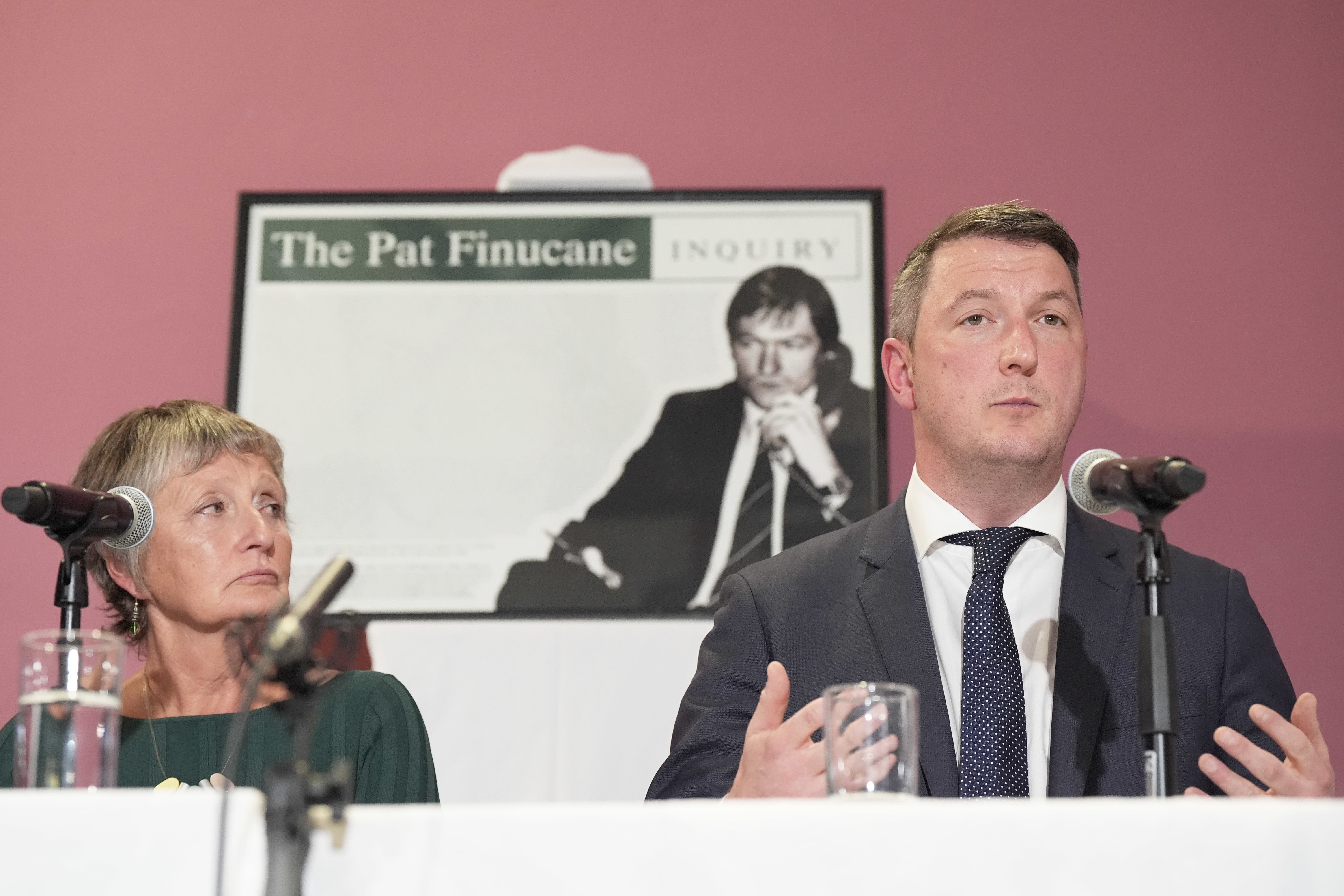Son of murdered lawyer denies family getting preferential treatment
The Government will establish an inquiry into the 1989 death of Pat Finucane.

Your support helps us to tell the story
From reproductive rights to climate change to Big Tech, The Independent is on the ground when the story is developing. Whether it's investigating the financials of Elon Musk's pro-Trump PAC or producing our latest documentary, 'The A Word', which shines a light on the American women fighting for reproductive rights, we know how important it is to parse out the facts from the messaging.
At such a critical moment in US history, we need reporters on the ground. Your donation allows us to keep sending journalists to speak to both sides of the story.
The Independent is trusted by Americans across the entire political spectrum. And unlike many other quality news outlets, we choose not to lock Americans out of our reporting and analysis with paywalls. We believe quality journalism should be available to everyone, paid for by those who can afford it.
Your support makes all the difference.John Finucane has rejected any suggestion his family has received preferential treatment with the granting of a public inquiry into his father’s murder.
Mr Finucane, a Sinn Fein MP for north Belfast, was responding to criticism voiced by unionist politicians of the Government’s decision to establish an independent inquiry into the shooting of solicitor Pat Finucane by loyalist paramilitaries in 1989.
Several unionist parties have questioned why the Finucane family has secured a potentially expensive public inquiry into their loved one’s killing, while hundreds of other families bereaved during the Troubles have failed to obtain similar investigations in their cases.
Mr Finucane, also a solicitor, said the treatment of his family over the 35 years since his father’s death could not be described as preferential.
“I have to say I hear the term preferential treatment, and if you can indulge me on this, it’s very difficult to square that with the experience that my family have been through for over 35 years,” he said.
“First of all, the state targeted and set in place, set in motion events that meant my father was murdered in front of all of us as we had our dinner.
“The term collusion was dismissed, not just dismissed when I was growing up, but to utter those words you were viewed in a certain light and, to be quite frank about it, it was dangerous at times to make allegations of collusion against the state in the aftermath of my father’s murder.
“Every single bit of progress we’ve had as a family has had to be fought for. It’s never been handed to us.
“We’ve had to fight in courts, domestic and international.
“My mother has not only had to deal with being a widow and raising three young children, but she has had to travel the world to gain support, which we were lucky enough to have.
“And every single bit of progress over a painful 35 and a half years has been hard fought and I would be very slow to describe that as preferential treatment.”
He added: “We were given a commitment nearly 20 years ago now that if a judge of international standing felt that there should be an inquiry, then the relevant government would have that inquiry.
“The Irish government lived up to their commitment.
“The British government lived up to their commitment in all other cases, bar one, and that was my father’s murder, and we have had to fight tooth and nail every step of the way, at times in the face of being insulted by people within the British government and outside of the British government.
“So, I think you could forgive me and my family for saying that today is not something that we look at as preferential treatment.”
The Ulster Human Rights Watch (UHRW) said that probes into legacy cases sent to the Independent Commission for Reconciliation and Information Recovery (ICRIR) should be treated with the same thoroughness as the Finucane public inquiry.
UHRW advocacy manager Axel Schmidt said: “Equality between victims and survivors of the Troubles, particularly for victims of terrorism, requires nothing less than the same treatment from the ICRIR as that given to the Finucane family by way of a public inquiry.”
Mr Finucane said his family would also support other bereaved relatives who were striving for truth and justice.
“I will also say that throughout 35 years, it began with my mum, and it’s carried on through all of us, we have always been clear that truth and justice applies to every single person who was unfortunate enough to be hit by our conflict and our past, and that is without partiality, without any equivocation, we have been consistent in that,” he said.
“So, any other family that continues to fight for truth and justice will have our support and we know what it’s like when the system is put in place to frustrate you and prevent you from getting answers.”